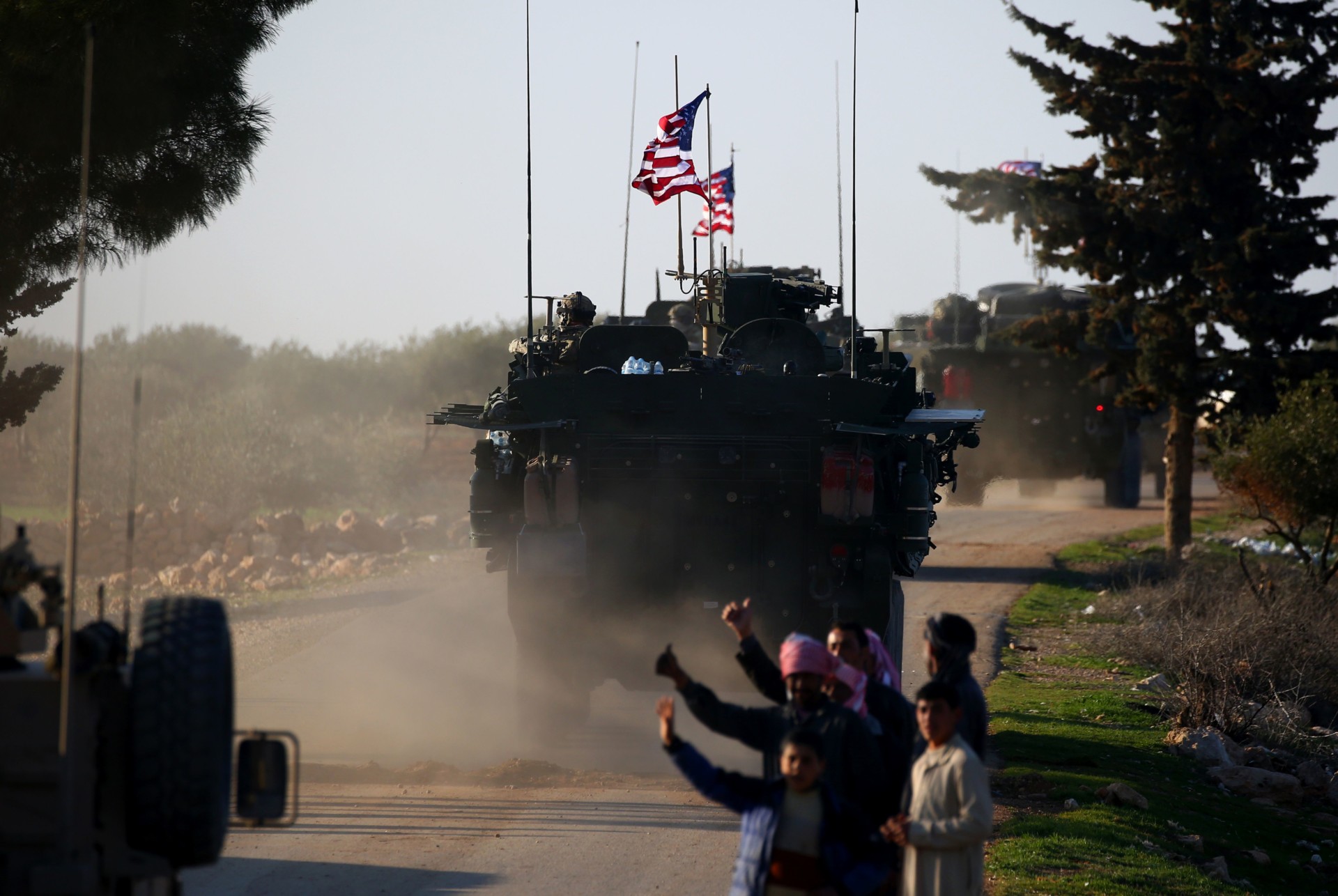By choosing to implement his predecessor’s decision to withdraw the U.S. military from Afghanistan on a calendar rather than conditions basis, President Biden seemed to please an electorate alienated by an “endless war” while also absorbing withering criticism over the evacuation’s execution. No doubt the president is relieved that Afghanistan is now in his rearview mirror, at least in terms of a U.S. military presence. Will he now follow the lead of former President Donald Trump on Syria?
It will be recalled that in mid-October 2019, Trump abruptly ordered his secretary of defense to remove U.S. forces from northeastern Syria. This followed a similar order in December 2018, one that had not been implemented. In both cases, the president had been beaten up telephonically by his Turkish counterpart, Recep Tayyip Erdoğan, who expressed outrage over the partnership between the U.S.-led anti-Islamic State group coalition and the Syrian chapter of the terrorist Kurdistan Workers’ Party (PKK). Indeed, since 2016, U.S. forces had been embedded within a Kurdish-led militia (the Syrian Democratic Forces — SDF) prosecuting the ground campaign against the Islamic State “caliphate.”
Trump’s second order to evacuate U.S. forces from Syria was again frustrated by aides, who creatively and over time convinced the president that a small U.S. force — perhaps 1,000 in total strength — could help the SDF guard Syrian oil fields, an activity that apparently appealed to Trump. When he left office in January 2021, the American uniformed contingent was still on the ground in Syria, providing and coordinating combat support for the SDF.
Biden could follow up on Afghanistan by executing his predecessor’s two orders to quit Syria. The view here is that he could do so and pay little in the way of a domestic political price. Although he would not likely repeat Trump’s mockery of the U.S. Central Command’s Syrian-Kurdish partners, his advisers could remind him that Trump’s extraordinary rhetoric caused barely a blip in public opinion on either side of America’s gaping political divide. “Get the hell out of Syria. It’s sand and blood and death” is how Trump put it when he was not denigrating allies. Many Americans — even those able to locate Syria on a world map — would agree with him.
Flipping the off switch on Syria would not, therefore, hurt Biden in terms of domestic politics. But what about foreign policy?
U.S. policy toward Syria over the past seven years has artificially divided itself into two parts: the physical battle against the Islamic State in the northeast and the rhetorical battle against a criminal regime in the balance of the country.
Military action against the Islamic State was mandated when the group mounted, from Syrian territory, a highly successful invasion of Iraq. Rhetoric was the weapon of choice against the Assad regime for several reasons. The Obama administration first thought Syrian President Bashar al-Assad would fall on his own. When he didn’t, it fretted over who might replace him. When Assad defied Obama’s red line and used chemical weapons against civilians, it was the U.S. president who buckled. Ultimately, that president would assure Iran’s supreme leader that U.S. military power in Syria would fall only on the Islamic State, not on the Iranian client whose encyclopedic crimes against humanity had made Syria safe for terrorists other than himself. Getting the 2015 nuclear deal with Iran seemed to dictate allowing Assad to do his worst to Syrian civilians, even when his state terror prompted a mass migration into Western Europe, a development that shook the democratic systems of several U.S. allies.
The Islamic State was finally destroyed during the Trump administration. But it seeks now to mount a comeback. Ironically, it is trying to use the Kurdish domination of the SDF to capitalize on the uneasiness of a predominantly Arab population with the propagation of a strange PKK ideology. If a U.S. military presence in the northeast is important for preempting an Islamic State insurgency, it must simultaneously provide combat support to the SDF while getting Kurds out of the business of trying to govern Arabs. Yes, they are all Syrians. But the ideology of Abdullah Ocalan, a founding member of the PKK, is foreign to the Arabs of northeastern Syria, and the Islamic State knows it.
An ongoing presence of U.S. troops in the northeast also blocks the Assad regime — supported by Iran and Russia — from subduing an area rich in energy and agriculture. The idea is not to partition Syria. Rather it is to keep the elements that facilitated the rise of the Islamic State in the first place out of areas liberated at great cost from the “caliphate.”
Absent complete political transition away from a murderous family and its thieving entourage, Syria will remain fertile ground for the growth of all manner of violent extremist movements.
The Biden team would do well to end the Obama-Trump bifurcation of Syria policy. Keeping the Islamic State dead in Syria is vital. But recognizing the role of the Assad regime in inspiring it and living with it while the U.S. and its allies sacrificed greatly to extinguish it — at least temporarily — is likewise critical. Absent complete political transition away from a murderous family and its thieving entourage, Syria will remain fertile ground for the growth of all manner of violent extremist movements.
If the evacuation of Afghanistan tested U.S. partnerships in ways that revealed something short of solidarity, building and sustaining an allied strategy for political transition in Syria while subduing the Islamic State can provide the corrective. Yes, pulling U.S. forces from Syria would be easy. Few Americans would object. But for Iran, the Islamic State, Russia and Assad, it would be a gift of enduring value, one that would gratuitously consign Syria, its neighbors and others — even Americans — to the violent consequences of a political black hole in an already unstable part of the world.



